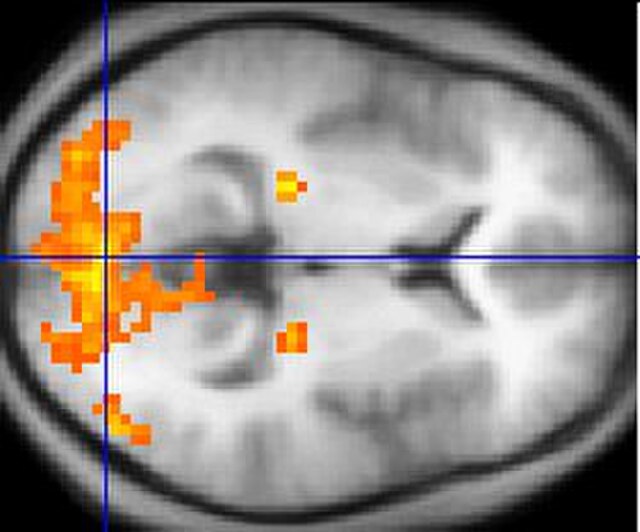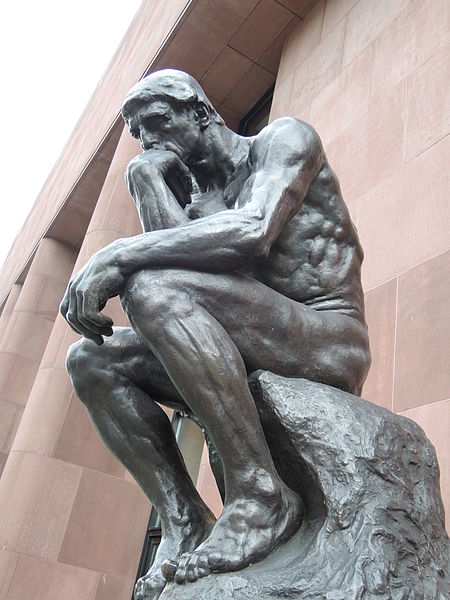The Philosophy of mind is a branch of philosophy that deals with the nature of the mind and its relation to the body and the external world.
Portrait of René Descartes by Frans Hals (1648)
John Searle—one of the most influential philosophers of mind, proponent of biological naturalism (Berkeley 2002)
Since the 1980s, sophisticated neuroimaging procedures, such as fMRI (above), have furnished increasing knowledge about the workings of the human brain, shedding light on ancient philosophical problems.
Philosophy is a systematic study of general and fundamental questions concerning topics like existence, reason, knowledge, value, mind, and language. It is a rational and critical inquiry that reflects on its own methods and assumptions.
The statue The Thinker by Auguste Rodin is a symbol of philosophical thought.
Physics was originally part of philosophy, like Isaac Newton's observation of how gravity affects falling apples.
Aristotle was a major figure in ancient philosophy and developed a comprehensive system of thought including metaphysics, logic, ethics, politics, and natural science.
Portrait of Avicenna on a silver vase. He was one of the most influential philosophers of the Islamic Golden Age.







